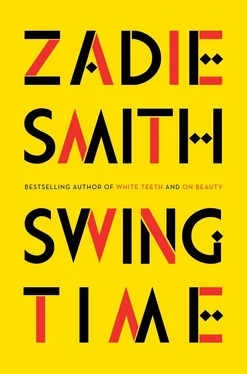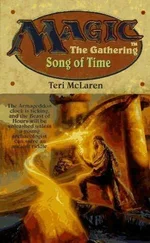My phone buzzed so frequently it seemed to have an animal life of its own. I stopped looking at it and focused instead on a very tall brother in the window of Housing Works, he had tremendous high-arched eyebrows and was holding up a series of dresses against his thick frame, stepping into a pair of roomy high heels. Spotting me, he smiled, sucked in his stomach, did a little turn and bowed. I don’t know why or how but the sight of him galvanized me. I stood up and hailed a taxi. Some questions were answered quickly. All the stuff I had in New York was in boxes on the sidewalk outside the West 10th Street apartment and the locks had already been changed. My visa status was linked to my employer: I had thirty days to leave the country. Where to stay took longer. I’d never really paid for anything in New York: I lived on Aimee, ate with Aimee, went out with Aimee, and the news my phone brought me of the price of a single night in a Manhattan hotel made me feel like Rip Van Winkle waking from his hundred-year sleep. Sitting on the front steps of West 10th, I tried to think of alternatives, friends, acquaintances, connections. All links were weak and led anyway back to Aimee. I considered an impossibility: walking in an easterly direction down this street till it met, in some sentimental dream, the west end of Sidmouth Road, where my mother would answer the door and lead me to her spare box-room, half buried in books. Where else? Where next? I had no coordinates. Unhailed cabs went by, one after the other, and fancy ladies with their little dogs. This being Manhattan, nobody paused to watch what must have looked like a staged reenactment: a weeping woman, sat on a step, under that Lazarus plaque, huddled by boxes, far from home.
• • •
I remembered James and Darryl. I’d met them both back sometime in March, it was on a Sunday night — my night off — I’d traveled uptown alone to see the Alvin Ailey dancers, and in the theater got talking to my seat mates, two gentlemen New Yorkers in their late fifties, a couple, one white and one black. James was English, tall and bald with a lugubrious voice and a very jolly laugh, still dressed for a pleasant pub lunch in some Oxfordshire hamlet — though he had lived here many years — and Darryl was American, with a gray-tipped Afro, mole-ish eyes behind glasses, and trousers with frayed hems and paint spattered on them, like a student artist. He knew so much about what was happening on stage, the history of each piece, of New York ballet in general and Alvin Ailey in particular, that at first I thought he must be a choreographer or an ex-dancer himself. In fact, they were both writers, funny and full of insight, I enjoyed their whispered opinions concerning the uses and limits of “cultural nationalism” in dance, and I, who had no opinions about dance, only wonderment, amused them, too, clapping after every light change and leaping to my feet as soon as the curtain fell. “It’s nice to see Revelations with someone who hasn’t seen it fifty times,” noted Darryl, and afterward they invited me for a drink in the hotel bar next door, and told a long and dramatic story of a house they’d bought, in Harlem, an Edith Wharton — era wreck, which they were doing up with their life savings. Hence the paint. To me it was an obviously heroic effort but one of their neighbors, a woman in her eighties, disapproved, both of James and Darryl, and the fast-paced gentrification of the neighborhood: she liked to shout at them in the street and push religious materials through the letterbox. James did an excellent physical impression of this lady, and I laughed too much and finished a second Martini. It was such a relief to be out with people who did not care about Aimee and did not want anything from me. “And one afternoon,” said Darryl, “I was walking alone, James was somewhere else, and she leaps out of the shadows, grabs my arm and says: But I can help you get away from him. You don’t need a master, you can be free — let me help you! She could have been going door to door, stumping for Barack, but no: her thing was James enslaving me. She was offering me my own personal underground railway. Smuggle me up into Spanish Harlem!” I had seen them occasionally since, on my free Sunday nights in the city. I watched them chip away at plaster to reveal original cornices, and fake porphyry by flicking specks of paint at a dark pink wall. Each time I visited I was moved: how happy they were together, after so many years! I didn’t have many other models of that idea. Two people creating the time of their own lives, protected somehow by love, not ignorant of history but not deformed by it, either. I liked them both so much, though I couldn’t really call them more than acquaintances. But I thought of them now. And when I sent a cautious text from the steps of West 10th, the response was immediate, characteristically generous: by dinner time I was at their table, eating better food than I’d ever come close to at Aimee’s. Flavorsome, fat-filled, pan-fried food. A bed had been made for me in one of the several spare rooms and I found they were like fondly prejudiced parents: however I told my tale of woe they refused to consider any part of it my fault. In their view I should be the angry one, all the blame was Aimee’s, none of it was mine, and I went to my beautiful wood-paneled room comforted by this rose-tinted vision.
I wasn’t angry until Judy sent the non-disclosure contract over, the next morning. I looked at a PDF of a piece of paper I must have signed, aged twenty-three, though I couldn’t remember ever doing so. Within its inflexible terms the things that came out of my mouth did not belong to me any longer, not my ideas or opinions or feelings, not even my memories. They were all hers. Everything that had happened in my life in the past decade belonged to her. Rage rose up in me instantaneously: I wanted to burn her house down. But everything you need to burn somebody’s house down these days is already in your hand. It was all in my hand — I didn’t even need to get out of bed. I set up an anonymous account, chose the gossip site she hated most, wrote an e-mail containing everything I knew about little Sankofa, attached the photo of her “adoption certificate,” pressed send. Satisfied, I went down to breakfast, expecting, I suppose, my hero’s welcome. But when I told my friends what I’d done — and what I thought it meant — James’s face turned as grave as the medieval St. Maurice statue in the hall, and Darryl took off his glasses, sat down and blinked at the pinewood dining table. He told me he hoped I understood how much, in a short time, he and James had come to love me — it was because they loved me they could tell me the truth — and that the only thing my e-mail signified was that I was still very young.
Ten
They camped outside Aimee’s brownstone. Two days later — to my shame — they were knocking on James and Darryl’s door. But that part was Judy’s doing, a blind item: illicit affair, “vengeful ex-employee”… Judy came from a different era, when blind items stayed blind and you could control the story. They had my name within a few hours, and soon after my location, God knows how. Maybe Tracey is right: maybe we are tracked at all times through our phones. I stayed in bed, while James brought up cups of tea and opened and shut the door to a persistent reporter and Darryl and I watched the tide turn on my laptop in real time as the day went on. Without doing anything different, without taking any action at all, I went from Judy’s tawdry, jealous minion to The People’s bold whistleblower, all in a few hours. Refresh, refresh. Addictive. My mother called and before I could even ask her how she was she said: “Alan showed me on the computer, and I think it was a really brave act. You know, you’ve always been a bit cowardly, I don’t mean cowardly — a bit timid. It’s my fault, I overprotected you, probably, mollycoddled you. This is the first really brave thing I’ve seen you do and I’m very proud!” Who was Alan? Her speech sounded slurry and not quite her own, more fake-posh than I’d ever heard it. I asked in a light way about her health. She gave nothing away — she’d had a little cold, but it had passed — and though I knew for a fact she was lying to me she sounded so adamant it felt like the truth. I promised her I’d come to visit her the moment I was back in England and she said, “Yes, yes, of course you will,” with far less conviction than she’d said everything else.
Читать дальше












